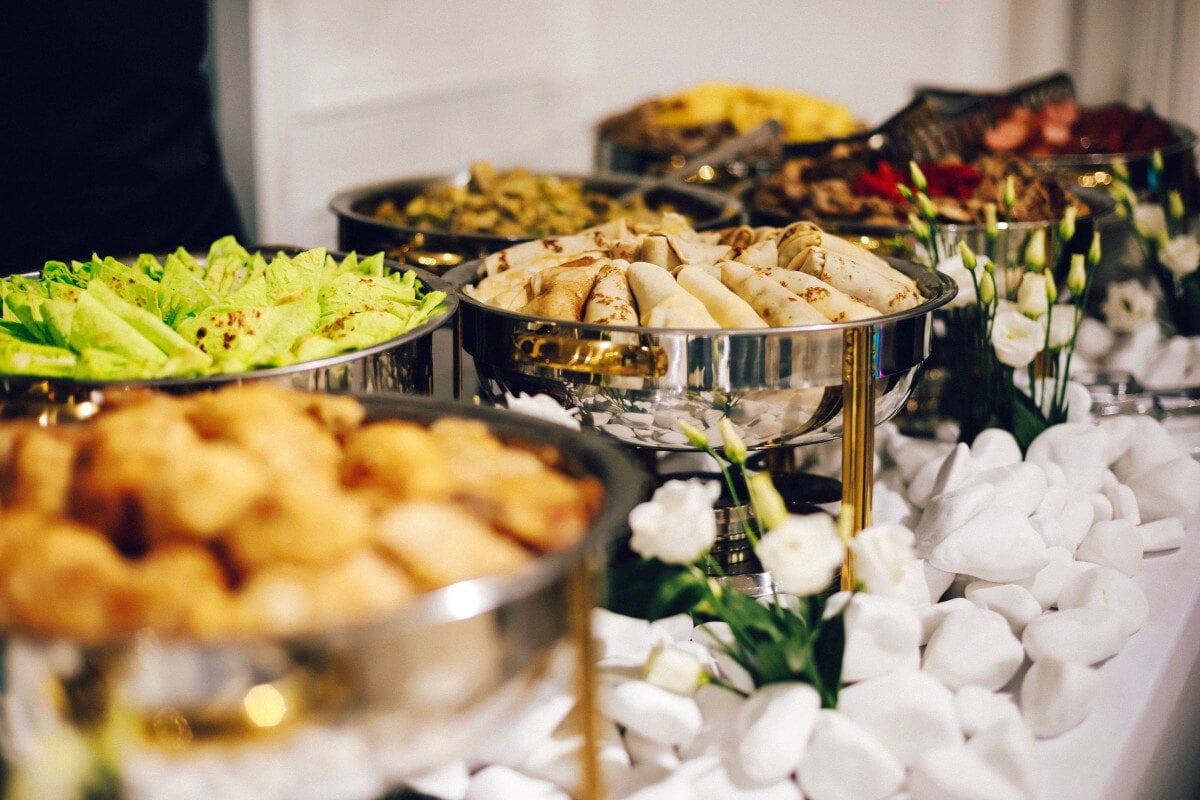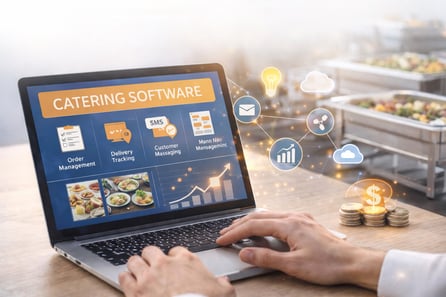6 min read
Key Considerations for Online Ordering in 2024
As the new year gets rolling, restaurants are aligning their guest engagement strategies to invest in essential growth channels. One channel that...
4 min read

To stay ahead of trends, this article gives guidance on choosing the right catering software. It highlights:
User-friendliness
Features
Integration
Client support
Catering software is a digital tool that helps catering companies with:
Event planning
Invoicing
Delivery management
Inventory control
In contrast, general catering software only does basic tasks. That might not be enough for your business.
Many software options help your catering business improve its daily tasks. Let’s look at three examples:
This helps caterers manage events by tracking event details. This can include helping a wedding caterer:
Stay organized
Create guest lists
Make schedules
Improve vendor relationships
Customize menus and beverage choices
It can be used as a party planner, accessible from anywhere with an internet connection.
This boosts customer loyalty and improves service with personalized experiences. Interactions with both current and new clients are key.
Keeping track of ingredients is a must. Inventory control software helps track:
Stock levels
Purchase orders
Overstocking or shortages
Offering the best catering services is a must in hospitality. That's why new catering software is needed for corporate catering. Catering software:
Tracks operations
Helps the needs of clients
Saves time
The right software is a good decision even for small catering companies. Catering software for small businesses is affordable and scalable. It helps owners:
Track bookings
Manage inventory
Provide great services
By automating booking, online ordering, and online payment processing, you reduce mistakes. You also speed up your tasks. With real-time data, your catering team can make better decisions.
They also help you create:
BEO (Banquet Event Order) templates
Kitchen production reports
Give access to the entire day’s schedule
Choosing the right catering platform helps you stay competitive and efficient.
Here are seven things to keep in mind:
They should be easy to use. A simple design makes tasks like menu planning, order tracking, and payment processing easy. That improves productivity.
Features should include:
Order management
Real-time updates
Client data handling
These features help:
Make tasks easy
Manage upcoming events
Build stronger customer relationships
Catering business software should work with tools you already use, including:
Point-of-sale (POS) systems
CRM platforms
This keeps data easy to access and makes completing tasks easier.
Customer support is a must. Your software should offer assistance for tech issues and other help.
Your catering company will grow. So should your software. Choose an option that offers what you need when you grow. The right catering platform will work for you whether you run events, take on larger shows, or have several locations.
A great catering platform supports current clients and business growth. Look for software where you can:
Run campaigns
Offer promotions to build customer loyalty that's easy to measure
Strong data analytics and reporting features are needed for catering businesses. The software should offer tools that track performance, measure customer happiness, and show sales data.
You must figure out which provider fits best based on these three things:
The reputation of your software provider matters. Check reviews and feedback from other catering businesses that have used the platform. A strong reputation and success stories from similar organizations let you know if the software will work for you.
Consider the software's return on investment (ROI). Ask how it can:
Improve your job tasks
Improve customer service
Check its value by asking about:
Features
Scalability
How the software can help your company grow and increase sales
Use trial periods and demos to test the software. You can:
Get comfortable with the software
Test its features
See how it fits with your daily tasks
Getting started with catering software includes:
Setup
Training
Troubleshooting
Offer your staff help in learning this new tool.
To start new software, keep the following in mind:
1. Training and Onboarding
Create a training plan that includes:
Hands-on help
Clear instructions
Ongoing support
This helps your team to:
Use the new tools
Make fewer mistakes
Boost productivity
2. Setting Up for Success
Customize the catering platform to match what your business does. By using the software to help with job tasks, you get all of its potential.

Online catering software is a great resource for helping your business be its best.
Here are two areas to focus on:
1. Improving Customer Experience
This helps you to tailor services and menus to meet individual needs. That makes your clients feel valued, which gets more repeat business. Catering software helps you personalize interactions by tracking:
What your customers like
Past orders
Special requests
2. Improving Operations
Using data can help you make smarter decisions. You can:
Spot popular dishes
Adjust your menu items accordingly
Better manage staff schedules
The software also helps with inventory management. It can lower waste and boost profits.
All types of catering companies have used software to improve how they run their businesses and enhance customer experiences. Here are three examples:
Domino’s integrated advanced data analytics into its operations for real-time insights across 15,000 stores. This system helped them watch what customers like and to create better delivery routes.
Sweetgreen made a custom software solution that used real-time inventory tracking with their POS and kitchen management systems. It helped them keep good stock levels and reduce waste.
Digital ordering platforms helped them increase sales. In Q1 2021, digital sales were 50% of the company's revenue. That helped create a 17.2% rise in same-store sales.
Use features that meet your needs now and help you grow in the future. Consider:
User-friendliness
Integrations
Scalability
Client management
Every catering company and its associated catering costs and profit are unique. It’s important to explore resources and assess your needs. This will help you choose the best solution to help with challenges, improve your business, and save time.
Ready to take the first step? Book a demo with our team now. We will show you how our catering solutions can improve your business without needing other catering software.
Need tips on how to improve your online ordering? Download our free Online Ordering Guide.